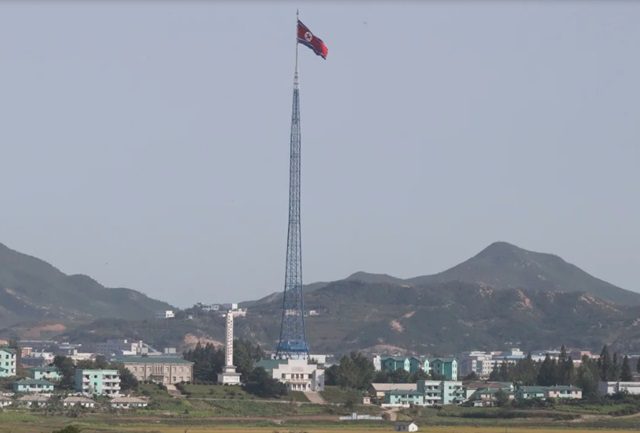BTN News: A high-ranking North Korean diplomat in Cuba has defected to South Korea, marking the latest in a series of defections from the North Korean elite. The South Korean National Intelligence Service confirmed the reports on Tuesday, revealing the defection of the North Korean political affairs advisor in Cuba. The intelligence agency released a brief statement through its public affairs office, which did not provide extensive details.
According to the South Korean newspaper Chosun Ilbo, the diplomat, Ri Il Kyu, fled to South Korea with his wife and children in November last year. Ri shared in an interview with Chosun Ilbo that his decision to defect was driven by disillusionment with the North Korean political system, an unfair job evaluation by Pyongyang’s Foreign Ministry, and the department’s refusal to allow him to travel to Mexico for treatment of a neurological injury. He noted that due to international sanctions, Cuban hospitals lacked the necessary medical equipment to treat his health issue.
Other South Korean media outlets later confirmed similar reports on Tuesday. Ri’s defection occurred before South Korea and Cuba established diplomatic relations in February. Experts believe that this development could have been a political blow to North Korea, which relies heavily on a few Cold War-era allies like Cuba for diplomatic support.
Background and Current Developments
Ri Il Kyu was actively involved in efforts to prevent the establishment of diplomatic relations between Havana and Seoul until his defection. He was previously recognized by North Korean leader Kim Jong Un for his role in negotiations with Panama that led to the release of a detained ship in 2013. The ship was allegedly carrying prohibited items such as missiles and fighter jet parts. At that time, Ri was the third secretary at the North Korean embassy in Cuba.
The South Korean government has observed a steady increase in the number of North Koreans with higher education and professional jobs defecting to the South in recent years. However, it remains rare for a member of the ruling elite to seek asylum in Seoul. Since the end of the Korean War (1950-1953), about 34,000 North Koreans have fled to South Korea, primarily to escape economic hardship and political repression. Most defectors are women from the poorer northern regions of North Korea, who arrived in the neighboring country since the mid-1990s, following a devastating famine in the North that reportedly killed hundreds of thousands of people.
Previous High-Profile Defections
In 2016, Tae Yongho, a minister at the North Korean embassy in London, defected to South Korea. In Seoul, Tae told the press that he made the decision because he did not want his children to live a “miserable” life in North Korea and fall into “despair” after witnessing the executions of officials and the development of nuclear weapons under Kim Jong Un’s regime. Pyongyang denounced Tae as “human scum” and accused him of embezzling public funds and other crimes. Tae was elected as a member of the South Korean National Assembly in 2020.
In 2019, the acting North Korean ambassador to Italy, Jo Song Gil, defected to South Korea. That same year, the acting ambassador in Kuwait arrived in South Korea with his family. The South Korean National Intelligence Service informed lawmakers in 2021 that the diplomat had changed his name to Ryu Hyun-woo after arriving in the country.
The South Korean Unification and Foreign Ministries have stated that they cannot confirm the reports regarding Ri’s defection.
Historical Context
The most high-profile defection to South Korea was that of Hwang Jang-yop, a senior official of North Korea’s ruling Workers’ Party and once a tutor to Kim Jong Il, the father of current leader Kim Jong Un. Hwang’s defection in 1997 was celebrated by many South Koreans as a significant intelligence coup and a sign that Pyongyang’s political system was inferior to Seoul’s. Hwang passed away in 2010.
Ri’s defection highlights the ongoing discontent among some members of North Korea’s elite and the challenges faced by the regime in maintaining loyalty among its diplomats stationed abroad. This latest defection could potentially strain North Korea’s diplomatic relationships and further isolate the country on the international stage.


